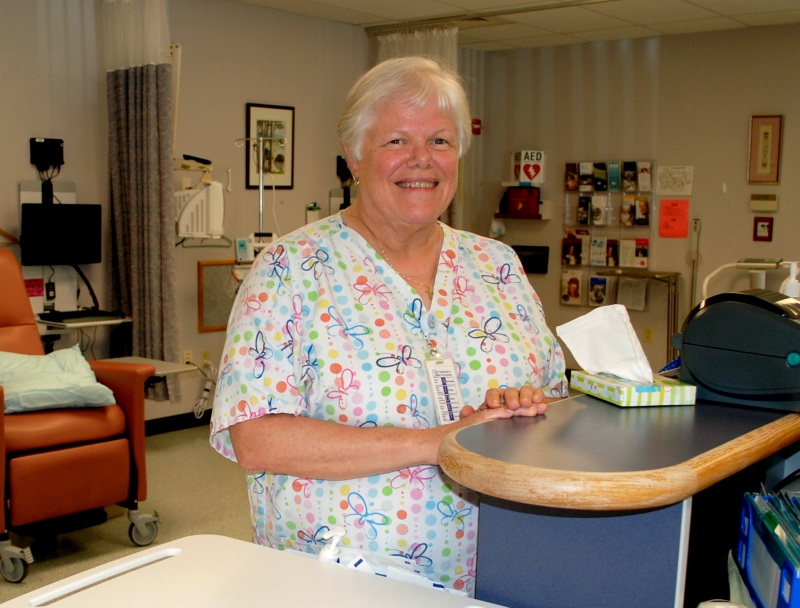
In June 1976, this nation was celebrating its bicentennial, minimum wage was $2.30 an hour, “Afternoon Delight” was No. 1 on the pop charts—and a young woman with a college degree and six months of nursing experience came to work at North Lincoln Hospital.
Forty-two years later, Kathy Van Hess, RN, is ready to leave her life’s work to focus on family, her large circle of friends and herself. On the list: camping with husband, Lee, in their travel trailer; spending time with the grandkids; enjoying quilting; and keeping up with OSU sports. But, she won’t quickly forget the patients she cared for, and the colleagues who became friends.
“I made a lot of friends and I’ve lost a lot of great friends,” Van Hess said, more than once, reflecting on the years that have passed.
Her supervisor, Susan Richwine, and others in Ambulatory Infusion describe Kathy as caring, compassionate, empathetic and relatable—a wonderful nurse and friend to all.
With a retirement date of May 3, she wrapped up her nursing career in Ambulatory Infusion Services. Other areas worked at SNLH include medical-surgical, obstetrics clinic, emergency department and pre-op. In the 1980s, with three boys all under the age of 4 (that’s a story in itself!) she chose to work per diem in the staff nursing pool for a few years. Kathy also had been employed at Willamette Falls Medical Center in Portland and at Albany General Hospital before coming to Lincoln City.
Van Hess says she loved her 21 years working in recovery and pre-op the best: patient teaching, prepping IV’s, and visiting with patients, many of whom she already knew as friends in the community. She describes herself as a “Chatty Kathy” who knows no strangers. And, having raised three boys who were active in sports, scouting and Young Life in Lincoln City, she had plenty of opportunity to be part of the community.
Her transfer to Ambulatory Infusion in 2014 was a welcome challenge at the end of a long career.
“Oncology is such a changing and developing field. There’s so much to learn,” she commented. “And, there have been so many success stories in cancer treatments.”
Through the years, both the nursing profession and the community have changed greatly, she said. Increasing government regulation and the advent of computers in the 1980s have changed the way care is delivered, but the human touch is no less vital for healing and caring.
As for Lincoln City in 1976, “it was all logging and fishing, no tourism. Everything closed down at 9 p.m.,” she recalls.





